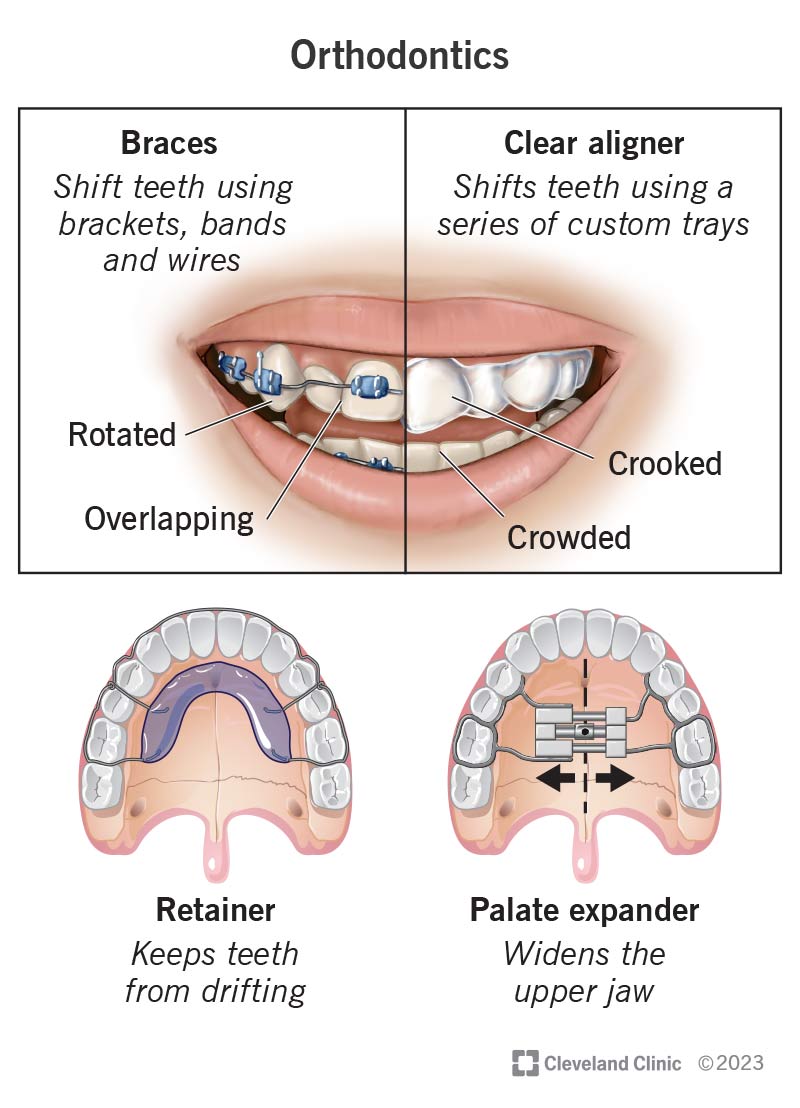Top Guidelines Of Causey Orthodontics
Top Guidelines Of Causey Orthodontics
Blog Article
4 Simple Techniques For Causey Orthodontics
Table of ContentsThe Ultimate Guide To Causey OrthodonticsSome Known Incorrect Statements About Causey Orthodontics Causey Orthodontics for BeginnersThe smart Trick of Causey Orthodontics That Nobody is Talking AboutSome Known Facts About Causey Orthodontics.Getting My Causey Orthodontics To WorkThe Greatest Guide To Causey Orthodontics
What is the difference between a dental practitioner and an orthodontist? To answer a concern that is frequently asked, both dental experts and orthodontists aid patients get far better dental wellness, albeit in different methods. It assists to keep in mind that dentistry is a rather wide science with various clinical specializations. All dentists, including orthodontists, deal with the teeth, periodontals, jaw and nerves.
You can assume of both medical professionals that treat gum and teeth issues. The primary difference is that ending up being an orthodontist needs a particular specialized in dealing with the misalignment of the teeth and jaw.
Excitement About Causey Orthodontics
An orthodontist is a dental practitioner that has actually undergone training to specialize in the medical diagnosis, prevention and therapy of abnormalities in the jaw and teeth. They can likewise recognize potential troubles in teeth alignment that may develop when problems are left neglected (best orthodontist).
This consists of all the required education and learning to end up being a basic dental professional. According to the American Trainee Dental Association (ASDA), it indicates you will certainly need to have either a Medical professional of Medicine in Dentistry (DMD) or a Medical Professional of Oral Surgery (DDS). To put it simply, orthodontists require to complete oral school and then get an orthodontics specialty education.
Some orthodontists additionally get their masters in craniofacial biology. orthodontist services (http://www.usaonlineclassifieds.com/view/item-2698050-Causey-Orthodontics.html). Several dental institutions offer minimal orthopedic training and guideline, which is why basic dental professionals require to head to orthodontic school after graduation. Orthodontic residency programs supply extensive training for this kind of oral field of expertise. These programs concentrate on 2 specific areas or techniques: Dentofacial Orthopedics: This study concentrates on directing teeth and jaw advancement.
Fascination About Causey Orthodontics

 These consist of device such as braces, retainers and Invisalign. What does an orthodontist do, and what do they concentrate on? The general objective of an orthodontist is to improve a patient's bite. Not everybody is birthed with straight teeth, and an orthodontist will make sure that patients get equally spaced straight teeth.
These consist of device such as braces, retainers and Invisalign. What does an orthodontist do, and what do they concentrate on? The general objective of an orthodontist is to improve a patient's bite. Not everybody is birthed with straight teeth, and an orthodontist will make sure that patients get equally spaced straight teeth.
The Greatest Guide To Causey Orthodontics
The American Association of Orthodontists advises your first check up by age 7. You'll need to see your orthodontist if you have a misalignment in your teeth, likewise called malocclusion. If you see uneven bite patterns, a slightly misshapen jaw, or when your teeth are overcrowded, you will likely need orthodontic therapy.
In addition, we use flexible treatment timetables, adaptable repayment choices and an enjoyable, enjoyable experience.
An orthodontist is a dental professional educated to diagnose, prevent, and deal with teeth and jaw irregularities. Orthodontists function with individuals of all ages, from kids to adults (https://jobs.employabilitydallas.org/employers/3216691-causey-orthodontics).
Getting My Causey Orthodontics To Work
Malocclusion, or misaligned teeth, can bring about oral issues, including dental cavity, gum illness, and tough or unpleasant eating. Not every person is birthed with straight teeth. If you have a negative bite or big areas in between your teeth, you may intend to consult a dentist specializing in orthodontic treatment.
(Photo Debt: DigitalVision/Getty Images) Orthodontists utilize fixed and detachable oral gadgets, like dental braces, retainers, and bands, to transform the position of teeth in your mouth. Orthodontic treatment is for oral irregularities, including: Crooked teethBite problems, like an overbite or an underbiteCrowded teeth or teeth that are also much apartJaw misalignmentThe objective of orthodontic therapy is to improve your bite.
Facts About Causey Orthodontics Uncovered

All orthodontists are dental practitioners, but not all dental experts are orthodontists. Orthodontic residency programs use intensive, focused instruction for oral specialists. They concentrate on two areas: Just how to correctly and securely move teeth Just how to properly guide development in the teeth, jaw, and faceOnce an orthodontist has actually finished training, they have the alternative to become board licensed.
Malocclusion leads to tooth overcrowding, an askew jaw, or uneven bite patterns. Malocclusion is generally treated with: Your orthodontist attaches metal, ceramic, or plastic square bonds to your teeth.
Little Known Facts About Causey Orthodontics.
If you have only small malocclusion, you may have the ability to make use of clear dental braces, called aligners, rather than conventional braces. Some people need a headgear to help move teeth right into line with stress from outside the mouth. After dental braces or aligners, you'll require to use a retainer. A retainer is a customized device that keeps your teeth in location.
Report this page